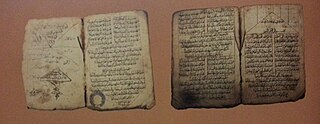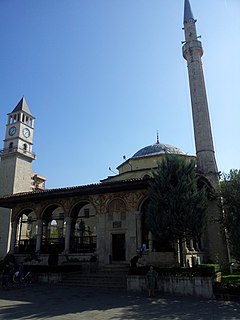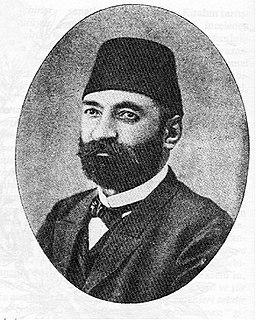 W
WAşık Çelebi was the name of Pir Mehmed, an Ottoman biographer, poet, and translator. Born in Prizren, he served as kadi (judge) in many towns of the Rumelia. His major work Senses of Poets (Meşairü'ş-Şuara) of 1568 is of major importance.
 W
WSuzi Çelebi of Prizren, in Turkish Prizrenli Suzi Çelebi, was an Ottoman poet and historiographer. He is remembered for his epic poem Gazavatnam Mihaloğlu which narrates the 15th-century Balkan conquests of the Ottomans, and the battles and glory of the military commander Ali Bey Mihaloğlu, being one of the most-known poetic works of the 15th century in overall.
 W
WDadaloğlu (Veli) (1785 ?–1868 ?) was a Turkish Ottoman bard, a folk poet.
 W
WYahya bey Dukagjini was an Ottoman poet and military figure. He is one of the best-known diwan poets of the 16th century. He wrote in Ottoman Turkish.
 W
WTahir Efendi Jakova, also known as Tahir Efendi Boshnjaku or The Great Efendi, was an Albanian religious leader of the Yakova region in Kosovo, as well one of the most known Albanian bejtexhi. He lived and served as a clergyman in Yakova. The best known work from him, Emni Vehbije was published with Arabic alphabet in Istanbul in 1835. A reprint of it with Latin alphabet was done in 1907 in Sofia, Bulgaria.
 W
WTevfik Fikret was the pseudonym of Mehmed Tevfik, an Ottoman educator and poet, who is considered the founder of the modern school of Turkish poetry.
 W
WHayâlî (خيالى) (1500?–1557) was the pen name of an Ottoman Turkish poet.
 W
WKaygusuz Abdal (1341–1444) was a Turkish folk poet of the 14th century.
 W
WAli Kemal Bey was an Ottoman-born Turkish journalist, newspaper editor, poet and a liberal-leaning politician, who was for some three months Minister of the Interior in the government of Damat Ferid Pasha, the Grand Vizier of the Ottoman Empire. He was murdered by a mob during the Turkish War of Independence.
 W
WHaxhi Et'hem Bey also known as Haxhi Et'hem bey Mollaj (1783–1846) was an Ottoman Albanian administrator, landlord and bejtexhi.
 W
WMuallim Naci, literally "Naci The Teacher", was an Ottoman writer, poet, educator and literary critic.
 W
WSüleyman Nazif was a Turkish poet and a prominent member of the CUP. He mastered Arabic, Persian, and French languages and worked as a civil servant during the reign of Sultan Abdul Hamid II. He contributed to the literary magazine Servet-i Fünun until it was censored by the Ottoman government in 1901.
 W
WKul Nesîmî, or simply Nesîmî, real name Ali was an Ottoman Alevi-Bektashi poet, who lived in the 17th century in Anatolia.
 W
WPir Sultan Abdal was a Turkish Alevi poet, whose direct and clear language as well as the richness of his imagination and the beauty of his verses led him to become loved among the Turkish people. Pir Sultan Abdal reflected the social, cultural and religious life of the people; he was a humanist, and wrote about God, Islam, Prophet Muhammad, Imam Ali, Twelve Imams, resistance, love and peace. He was also rebellious against authoritarian rule which led him into problems with the Ottoman establishment.
 W
WTodur Zanet is a Gagauz and Moldovan journalist, folklorist and poet, one of the most prominent contributors to Gagauz literature and theater. He editor-in-chef of Ana Sözü newspaper, which cultivates the Gagauz language, and has written the original anthem of Gagauzia. His activity as a journalist began under Soviet rule, and first peaked during the Perestroika years, when he became involved with the Gagauz nationalist movement.